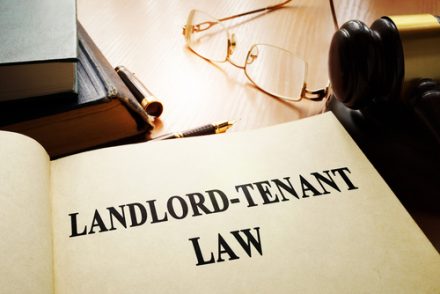Landlord-tenant laws are complicated in every state because there are so many of them. Both tenants and landlords have to uphold certain responsibilities by law.
Knowing these obligations can lead to a smooth rental experience for both parties and improve the tenant-landlord relationship.
Keep reading to learn about the different responsibilities of a tenant vs. landlord.
Landlord-Tenant Laws
Tenant-landlord laws explain the rights and obligations of tenants and landlords regarding an investment property. A lease agreement should cover the local laws and specific responsibilities each party must fulfill.
A property owner and a tenant can negotiate lease terms for a mutually beneficial relationship.
Tenant rights can vary by state. For example, Virginia is a landlord-friendly state while California leans towards tenant-friendliness.
This means that Virginia has laws benefiting property owners while California has fewer renter restrictions and responsibilities. Through negotiation, landlords and tenants can agree on responsibilities like:
- Utilities
- Appliances
- Landscaping
The first step to discovering tenant vs. landlord obligations is to research the laws in your state.
Tenant Responsibilities
As stated before, tenant responsibilities can vary by state, but some states make responsibilities predictable. Tenants won’t have to handle any unreasonable tasks.
Maintenance Requirements
Tenants who sign their lease agreements agree to maintain the general upkeep of their rental unit. Maintenance issues pop up from time to time and should be handled as soon as possible.
This doesn’t mean the tenant has to fix the issue themselves. Most states have a warranty of habitability that requires landlords to handle maintenance and repairs.
If the tenant fails to report the issue through the designated maintenance request channel, the landlord is not responsible.
Tenants can report landlords who ignore maintenance requests to a housing inspector. Some states allow tenants to withhold rent until the issue is addressed.
A landlord report to credit agency isn’t common, but it’s possible. Landlords who report rent payments to credit bureaus might deter tenants from withholding rent.
Excessive Property Damage
Normal wear and tear is covered by the landlord. If tenants pay a security deposit at the beginning of their tenancy, landlords cannot deduct wear and tear from the deposit.
Tenants are responsible for excessive property damage, such as:
- Stained flooring
- Holes in the walls
- Broken windows
- Unapproved wall paint
- Broken appliances
Tenants are responsible for paying for these types of damages. They likely won’t receive their full security deposit back if they fail to repair these issues before moving out of the unit.
Waste Management
While tenants have a right to a livable unit, they could forfeit this right if they cause the problem. For example, letting garbage pile up in the rental can lead to a pest infestation that the landlord wouldn’t be obligated to take care of.
Unsanitary conditions can also lead to other property damages that the tenant becomes responsible for.
It’s the tenant’s responsibility to handle waste properly. Some properties offer trash pickup services on certain days that require the tenants to place their trash bags outdoors. If this service is offered, tenants likely pay extra for it.
Pet Damage
Landlords can choose to charge a pet deposit or rent when allowing animals in their rental property. This is to offset the risk that a pet damages the property.
Some pet deposits are nonrefundable. In this case, tenants are required to pay for damages caused by their pets, such as:
- Scratches on the door
- Tears in the carpet
- Injury to other tenants
A landlord cannot charge extra fees for an emotional support or service animal. Under the Fair Housing Act, people with disabilities have a right to fair accommodations.
Still, tenants with these animals must pay for damages that their pet causes at the end of the lease duration.
Landlord Responsibilities
Rental real estate comes with a lot of responsibilities for landlords. Property maintenance is one of the most crucial obligations, but it isn’t the only one.
Maintenance Requirements
When a property needs major repairs, landlords must quickly respond to requests and fix the issues. These are common examples of major repairs that a landlord becomes responsible for as the property owner:
- Structural damage
- Water damage
- Roof damage
- Major plumbing problems
- Electrical problems
Rental units must have heating and cooling systems to keep the property comfortable. Additionally, tenants should have hot and cold water.
If the water heater fails, a landlord must pay for the repair. A landlord can hire independent contractors to ensure repairs are completed correctly.
Safety
Landlords must install safety features in rental units by law. Keeping the property safe can keep tenants happy and protect your building.
Fire alarms, carbon monoxide (CO2) detectors, and smoke detectors are among some of the most important safety features.
If toxins are found in the rental property, landlords must eradicate them. Lead paint dust, asbestos, and mold all fall under the responsibility of the landlord.
Pest Control
If there is a pest infestation that the tenant is not responsible for, the landlord must pay to eradicate the pests.
Depending on the severity of the problem, this could mean putting tenants in a hotel until the problem is handled.
Consider spraying for pests once or twice a year to mitigate your risk of an infestation. This proactive maintenance will help you save money in the long run.
Common Areas
Some landlords have more common areas to maintain than others. These are the areas that landlords are responsible for maintaining:
- Lobbies
- Hallways
- Stairs and elevators
- Swimming pools
- Gyms
- Laundry rooms
Landlords should also maintain parks on the property, but tenants are responsible for picking up after their pets.
All common areas must be up to local building codes.
Tenant vs. Landlord Obligations to Know
Tenant vs. landlord obligations can vary by state and negotiated lease agreements. In the world of rental real estate, both parties have responsibilities they need to uphold.
With the information in this guide, you can discover your obligations whether you are a landlord or tenant. Knowing your rights is essential to a positive relationship.
For more blogs like this on real estate, keep coming back to our website.















Leave a comment